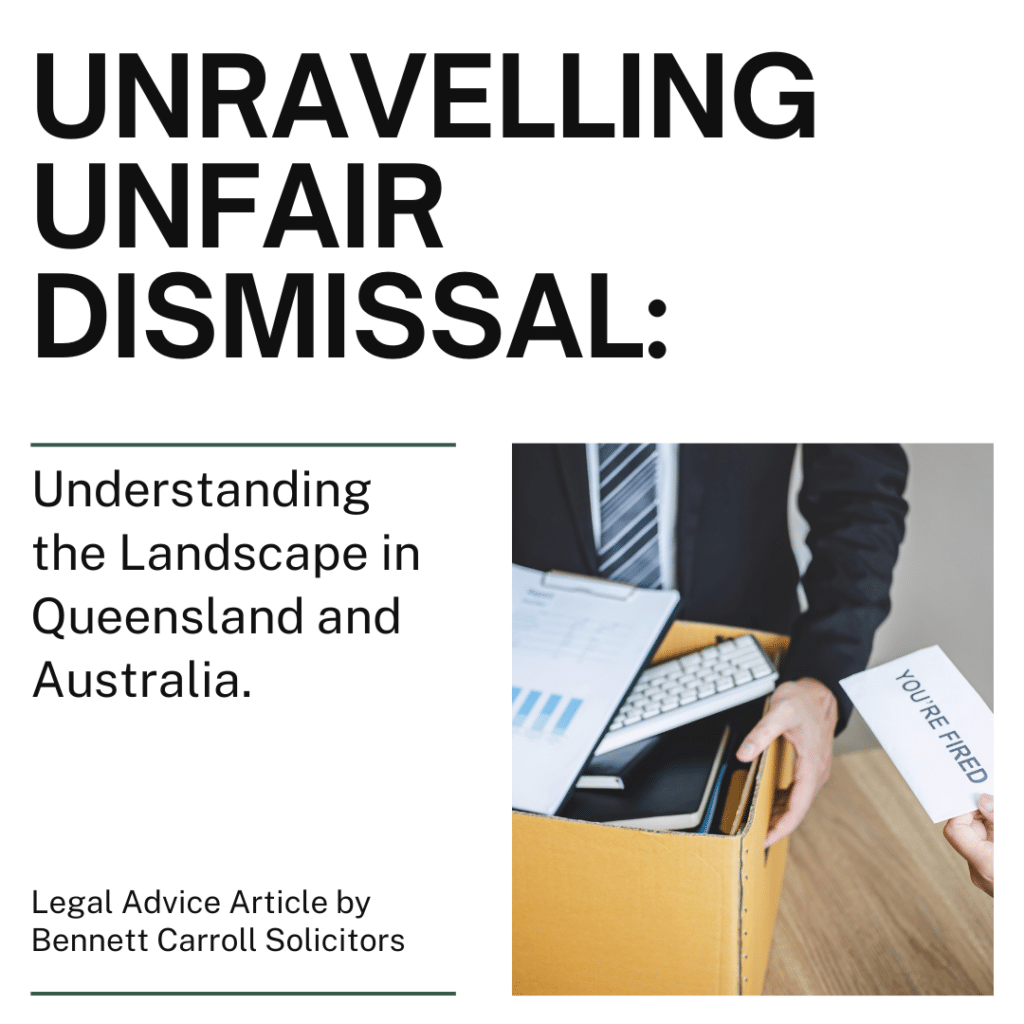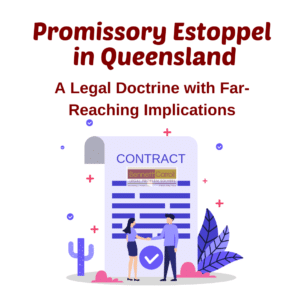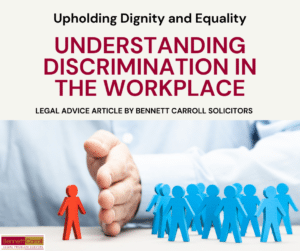Unfair dismissal is a significant concern for employees across Queensland and Australia, as it can disrupt livelihoods, damage reputations, and lead to financial hardship. However, both jurisdictions have robust legal frameworks in place to protect employees from unjust termination and provide avenues for recourse in cases of unfair dismissal. Understanding the laws and regulations surrounding unfair dismissal is essential for both employers and employees to navigate the employment landscape with clarity and confidence.
What Constitutes Unfair Dismissal?
In Queensland and Australia, unfair dismissal occurs when an employee is terminated from their employment in a manner that is harsh, unjust, or unreasonable. While the specific circumstances may vary, several key factors typically contribute to a finding of unfair dismissal:
Lack of Valid Reason: An employer must have a valid reason for dismissing an employee. Valid reasons may include poor performance, misconduct, redundancy, or a genuine operational requirement. Dismissing an employee without a valid reason is likely to be deemed unfair.
Procedural Fairness: Employers are required to follow fair and transparent procedures when terminating an employee’s employment. This includes providing the employee with notice of termination, conducting a thorough investigation into any allegations of misconduct or poor performance, and allowing the employee an opportunity to respond to the allegations before a decision is made.
Unreasonable Decision: The decision to dismiss an employee must be reasonable in the circumstances. Factors such as the severity of the alleged misconduct or performance issues, the employee’s length of service, and any mitigating factors should be taken into account when determining the fairness of the dismissal.
Discrimination or Retaliation: Dismissing an employee based on discriminatory grounds, such as race, gender, age, or disability, is unlawful and constitutes unfair dismissal. Similarly, terminating an employee in retaliation for exercising their workplace rights, such as making a complaint or taking leave, is considered unfair.
Legal Protections and Recourse for Employees
Employees in Queensland and Australia enjoy legal protections against unfair dismissal, enforced by the Fair Work Commission (FWC) at the national level and the Queensland Industrial Relations Commission (QIRC) within the state. Key aspects of these protections include:
Fair Work Act 2009 (Cth): The Fair Work Act provides a framework for resolving unfair dismissal claims at the federal level. Employees who believe they have been unfairly dismissed can lodge a claim with the Fair Work Commission within 21 days of the termination taking effect. The FWC will then conduct a conciliation process to attempt to resolve the dispute. If conciliation is unsuccessful, the matter may proceed to a formal hearing, where the FWC will determine whether the dismissal was unfair.
Queensland Industrial Relations Act 2016: The Queensland Industrial Relations Act governs unfair dismissal claims within the state. Employees covered by state industrial relations legislation, such as those in the public sector or state-regulated industries, can lodge unfair dismissal claims with the Queensland Industrial Relations Commission (QIRC). The QIRC has the authority to hear and determine unfair dismissal cases and may order remedies such as reinstatement, compensation, or compensation in lieu of reinstatement if it finds that the dismissal was unfair.
Remedies and Compensation: If a dismissal is found to be unfair, the Fair Work Commission or Queensland Industrial Relations Commission may order remedies such as reinstatement, compensation, or compensation in lieu of reinstatement. The amount of compensation awarded will depend on various factors, including the employee’s length of service, the financial impact of the dismissal, and any mitigating circumstances.
Employer Obligations and Defences
While employees have legal protections against unfair dismissal, employers also have rights and obligations under the law. Employers may defend against unfair dismissal claims by demonstrating that the dismissal was justified based on valid reasons, procedural fairness was observed, and the decision was reasonable in the circumstances. Employers should maintain comprehensive records of the reasons for dismissal, any performance or misconduct issues, and the steps taken to address them to support their defence in the event of an unfair dismissal claim.
Conclusion
Unfair dismissal is a complex and multifaceted issue that requires careful consideration of legal rights, obligations, and procedures. Employees in Queensland and Australia are protected by robust legal frameworks that provide avenues for recourse in cases of unfair dismissal. By understanding the laws and regulations surrounding unfair dismissal and seeking appropriate legal advice and representation when necessary, both employers and employees can navigate the employment landscape with confidence and ensure that disputes are resolved fairly and equitably.
If you believe you’ve been unfairly dismissed or need guidance on handling dismissal matters, don’t hesitate to reach out to us. Our experienced legal team is here to help you understand your rights and navigate the process. Contact us today at 1300 334 566 or email us at info@bcglaw.com.au to schedule a consultation and protect your interests.








